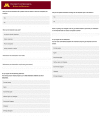Medical Student Workshop Improves Student Confidence in Working With Trained Medical Interpreters
- PMID: 32440571
- PMCID: PMC7227139
- DOI: 10.1177/2382120520918862
Medical Student Workshop Improves Student Confidence in Working With Trained Medical Interpreters
Abstract
Introduction: Many physicians care for patients whose primary spoken language is not English, and these interactions present challenges in physician-patient communication. These challenges contribute to the significant health disparities experienced by populations with limited English proficiency (LEP). Using trained medical interpreters is an important step in addressing this problem, as it improves communication outcomes. Despite this, many medical education programs have little formal instruction on how to work effectively with interpreters.
Methods: To address this gap, we created an interactive workshop led by professional trained interpreters and faculty facilitators for medical students in their clinical years. Students were asked to evaluate the session based on relevance to their clinical experiences and helpfulness in preparing them for interactions with patients with LEP.
Results: Immediately after the session, students reported that the clinical scenarios presented were similar those seen on their clinical clerkships. They also reported increased confidence in their ability to work with interpreters. On later follow-up, students reported that the instruction helped prepare them for subsequent patient interactions that involved interpreters.
Conclusion: A workshop is an effective method for improving medical student comfort and confidence when working with interpreters for populations with LEP.
Keywords: Medical education; interdisciplinary education; interpreters; medical students.
© The Author(s) 2020.
Conflict of interest statement
Declaration of Conflicting Interests:The author(s) declared no potential conflicts of interest with respect to the research, authorship, and/or publication of this article.
Figures



Similar articles
-
Assessing Medical Student Readiness to Navigate Language Barriers in Telehealth: Cross-sectional Survey Study.JMIR Med Educ. 2022 Aug 11;8(3):e36096. doi: 10.2196/36096. JMIR Med Educ. 2022. PMID: 35969421 Free PMC article.
-
Interpreter and limited-English proficiency patient training helps develop medical and physician assistant students' cross-cultural communication skills.BMC Med Educ. 2024 Feb 23;24(1):185. doi: 10.1186/s12909-024-05173-z. BMC Med Educ. 2024. PMID: 38395858 Free PMC article.
-
Evaluation of medical student self-rated preparedness to care for limited English proficiency patients.BMC Med Educ. 2011 Jun 1;11:26. doi: 10.1186/1472-6920-11-26. BMC Med Educ. 2011. PMID: 21631943 Free PMC article.
-
Working with interpreters: an interactive Web-based learning module.Acad Med. 2002 Sep;77(9):927. doi: 10.1097/00001888-200209000-00029. Acad Med. 2002. PMID: 12228096 Review.
-
The roles and experiences of medical interpreters in palliative care: A narrative review.Palliat Support Care. 2023 Oct 19:1-8. doi: 10.1017/S1478951523001505. Online ahead of print. Palliat Support Care. 2023. PMID: 37855105 Review.
Cited by
-
Best Practices for Partnering With Interpreters in Clinical Encounters: A Multimodal Approach for Teaching Medical Students.Cureus. 2025 May 28;17(5):e84948. doi: 10.7759/cureus.84948. eCollection 2025 May. Cureus. 2025. PMID: 40585745 Free PMC article.
-
Improving Medical and Surgical Care: A Qualitative Study of Medical Students' Experience With Language Barriers in Healthcare.Cureus. 2024 Aug 9;16(8):e66505. doi: 10.7759/cureus.66505. eCollection 2024 Aug. Cureus. 2024. PMID: 39246886 Free PMC article.
-
Evaluation of a training programme for interpreters in the field of trauma-focused cognitive behavioural therapy - one year follow-up.Eur J Psychotraumatol. 2025 Dec;16(1):2525724. doi: 10.1080/20008066.2025.2525724. Epub 2025 Jul 15. Eur J Psychotraumatol. 2025. PMID: 40662989 Free PMC article.
-
Bridging the language gap: Simulation-based education improves communication, confidence, and knowledge for emergency medicine residents working with interpreters.AEM Educ Train. 2025 Jun 24;9(3):e70056. doi: 10.1002/aet2.70056. eCollection 2025 Jun. AEM Educ Train. 2025. PMID: 40574932
References
LinkOut - more resources
Full Text Sources
Miscellaneous

